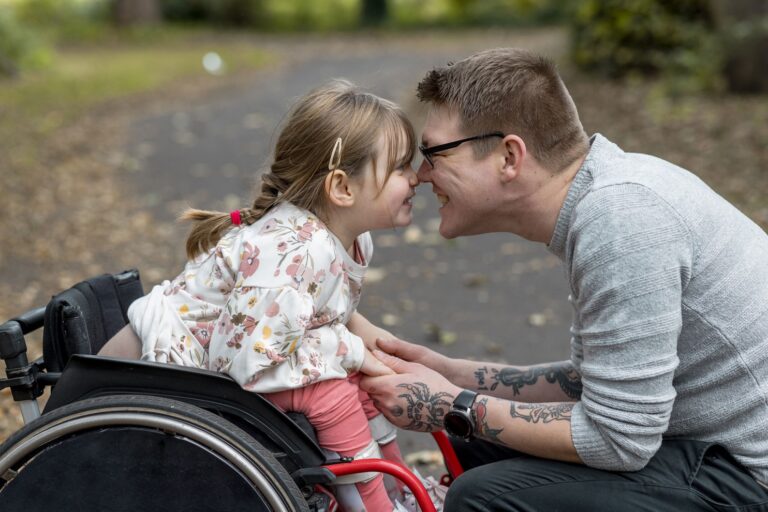Community Engagement Strategies for Inclusive Resident Support
In the realm of assisted living, community engagement is vital for creating a supportive community for residents and fostering an inclusive environment. This article is an essential read for organizations committed to enhancing resident support and providing practical strategies for engaging those who may feel marginalized. Key points include forming dynamic partnerships with local organizations to amplify healthcare services and fostering programs that involve residents in crucial local decisions. By spotlighting these strategies, readers can learn how to navigate common challenges caregivers, landlords, and healthcare providers face, strengthening the ties between residents and their broader communities. Whether you are a family member, a healthcare professional, or leading an assisted living facility, this post will guide you through comprehensive approaches to uplift and involve every member of your community.
Key Takeaways
- Inclusive community outreach is essential for personalized resident care in assisted living
- Multilingual resources and accessible design enhance the quality of life for residents
- Resident feedback is crucial for refining and improving community support programs
- Collaborative partnerships with local organizations expand support and resources
- Technology in assisted living facilities promotes real-time communication and personalized care
Implementing Inclusive Community Outreach Programs
In the pursuit of providing specialized care, inclusive community outreach programs play a vital role. These initiatives target varied aspects of residents’ lives, from enhancing activities of daily living to supporting those with memory challenges or managing opioid dependencies. This focused approach considers the diverse needs and perspectives within the community, ensuring residents across the United States, including those recovering from injury, find a supportive environment. The next sections unfold the strategies for identifying these needs and developing communication channels that residents can easily access and navigate.
Identify Diverse Community Needs and Perspectives
Recognizing signs and symptoms of mental distress among residents is a cornerstone of inclusive community outreach. Professionals in the assisted living sphere should possess the skills to identify when intervention may be necessary and to do so within the context of each individual’s cultural background and personal circumstances. This expertise is especially crucial for providing support to residents, including Native American populations, who may face unique challenges and barriers to accessing care.
Understanding the economic factors that impact residents is also essential, as many may rely on benefits like supplemental security income. A tailored approach to communication means considering not just linguistic barriers, but also ensuring that all residents, regardless of their education or background, are made aware of available support services. This acknowledgment of the various needs within a community lays the groundwork for an environment that is as compassionate as it is competent.
Develop Accessible Communication Channels
Creating channels of communication that everyone can use is key in any assisted living community. For example, a nursing home may integrate data from health assessments to inform residents about diet modifications that can aid in managing their health conditions. This initiative demonstrates the value of using actionable data to address specific needs, ensuring residents not only receive information but also understand it.
In emergency situations, the ability to convey vital information swiftly and clearly can be life-saving. An assisted living facility might implement a system that sends alerts to all residents and staff, regardless of their location within the premises. Utilizing straightforward language and a variety of platforms ensures important messages about safety, whether related to extreme weather or health emergencies, reach everyone in the agriculture community promptly.
Promoting Resident Participation in Local Decision-Making
Active engagement in local decision-making empowers residents and builds a stronger community within assisted living facilities. Organizing inclusive town hall meetings provides a platform for discussion where even the voices of veterans and those in need of crisis intervention can be heard. Facilitating collaborative workshops and forums creates opportunities for health professionals to provide mental health service education. These strategies, designed in accordance with data from the United States Census Bureau, foster a participatory environment where residents co-create a support system tailored to their needs.
Organize Inclusive Town Hall Meetings
In order to ensure that every resident’s voice is heard and valued, assisted living communities are increasingly organizing inclusive town hall meetings. These gatherings offer a platform for residents to discuss a range of concerns, including the nuanced needs of those with eating disorders—a topic that demands sensitivity and informed discussions aligned with guidelines from the American Psychiatric Association. By promoting transparency and direct communication, residents are encouraged to share their insights and contribute to community-wide wellness initiatives.
Through these forums, professionals can present findings consistent with the Diagnostic and Statistical Manual of Mental Disorders, facilitating a deeper understanding of the various conditions, including disease management, that affect community members. Utilizing accessible resources, such as informational websites beginning with “https”, enables residents and their families to stay informed and actively involved in the policy-making process that shapes their care environment. This collaborative approach aims not only to address current needs but also to anticipate and plan for future challenges, thereby creating a dynamic and supportive community.
Facilitate Collaborative Workshops and Forums
Collaborative workshops within assisted living environments serve as a bridge between residents and the wealth of information available to manage chronic conditions like diabetes. These forums bring healthcare professionals and residents together to exchange knowledge and practices, fostering an atmosphere of collective learning and support. They emphasize the importance of informed choices in residential care, drawing on the personal experiences of those who call a group home their community.
In these interactive sessions, gratitude is often a recurring theme, acknowledging both the challenges and the team’s efforts to overcome them. By engaging directly with residents, these workshops garner actionable insights that enhance daily operations in group homes, ensuring that the information disseminated is not only accurate but also genuinely beneficial. They underline an approach where shared learning leads to a stronger, more informed community rooted in mutual support and understanding.
Fostering Partnerships With Community Organizations
Forging collaborations with community organizations enhances resident support systems in assisted living. Engaging with local nonprofits and advocacy groups extends resources and expertise, which is vital for those grappling with various forms of pain and health challenges. Additionally, these alliances advance community improvement projects, tapping into population-specific insights endorsed by entities like the National Institutes of Health and addressing needs uncovered by recent gene studies. The upcoming discussion will detail the formation of these partnerships, emphasizing their value in practical terms, especially within Dallas’s diverse communities.
Engage With Local Nonprofits and Advocacy Groups
Assisted living facilities increasingly recognize the importance of collaborating with local nonprofits and advocacy groups, particularly in supporting residents who may struggle with panic disorder or have experiences with the criminal justice system. This collaborative approach not only expands support networks but also enhances the mood and mental well-being of residents through programs tailored to address conditions like psychosis, drawing on resources from trusted portals like MedlinePlus for evidence-based information.
Establishing these partnerships often results in a more holistic support system that can address a broader spectrum of resident needs. It integrates expertise from different sectors, harnessing diverse perspectives that enrich care strategies. These alliances enable the sharing of specialized knowledge and the development of programs that are attuned to the complexities of mental health management within an assisted living context.
Collaborate on Community Improvement Projects
Collaborating on community improvement projects, assisted living facilities can play a pivotal role in enhancing residents’ psychological resilience. By partnering with local advocacy groups, these facilities actively support initiatives aimed at community well-being, which research indicates contributes significantly to the mental health of individuals. Engaging in these projects allows residents to connect with wider community resources, further empowering them to find assisted living options that are proactive and supportive, not just reactive and accommodating.
Such partnerships, often informed by census data, also provide more qualitative support, such as better help therapy programs designed to foster emotional well-being and social connections. Through community projects, assisted living facilities become pivotal figures in the conversation about mental health, offering layered support that integrates medical knowledge with compassionate understanding, elevating the overall quality of care and resident satisfaction.
Utilizing Technology to Increase Resident Engagement
In the realm of assisted living, the integration of technology stands as a beacon for enhancing resident engagement. The forthcoming sections detail pioneering strategies such as launching interactive community platforms online and implementing mobile apps for real-time feedback. Traversing topics from poverty reduction to optimized medication adherence, these digital tools not only facilitate communication but also empower residents in matters of renting, employment, and health education, aligning with guidelines from the Centers for Disease Control and Prevention. By embracing these tech-based approaches, communities can address resident needs more efficiently, fostering inclusivity and active participation.
Launch Interactive Community Platforms Online
Interactive community platforms online have revolutionized the way residents in schizophrenia-assisted living facilities communicate with their primary care physicians and management teams. These digital portals encourage individuals to express their feelings, schedule clinic visits, and manage their overall well-being, enhancing the personalization of their care.
Assisted living communities can leverage these platforms to offer real-time support and resources, bridging the gap between care providers and those they serve. The implementation of such technology facilitates a streamlined approach to health management, boosting the autonomy and confidence of residents in their daily lives.
Implement Mobile Apps for Real-Time Feedback
Mobile applications foster real-time feedback loops between residents and healthcare providers, a step forward championed by the World Health Organization for promoting health equity. For individuals managing anorexia nervosa, timely communication with dieticians or physicians through an app can significantly impact their eating habits and recovery journey. These apps provide a discreet channel for residents to seek assistance, thereby enhancing their sense of autonomy and engagement in their own care process.
In an environment where every resident’s voice matters, a well-designed mobile app can serve as the critical link to personal well-being and community support. The facility’s website can direct users to download their resident-centric app, equipped with features allowing residents to share their experiences and receive tailored advice. This technological bridge assures residents that their concerns are heard and addressed proactively, contributing to a more equitable and responsive care experience.
Providing Inclusive Services and Support Programs
Assisted living facilities are enhancing care and promoting inclusivity by providing services that address various residents’ needs. For English speakers and non-English speakers alike, offering multilingual resources ensures all receive accurate, compassionate support for challenges like substance use disorder or navigating outpatient mental health services. The upcoming segments will delve into strategies for honing resource accessibility for every resident, referencing the American Psychological Association’s guidelines and leveraging relevant statistics to inform and improve these services.
Offer Multilingual Resources and Assistance
In the fight against social isolation within assisted living communities, offering resources in multiple languages bridges communication gaps and promotes inclusivity. The collaboration with organizations like the Mayo Clinic and the Institute of Mental Health educates residents in their native languages, ensuring they understand their health conditions and the community support available to them. This approach empowers individuals to connect with services, such as “psychiatrists near me,” and leverage programs offered by the United States Department of Housing and Urban Development for a fulfilling living experience.
Assisted living facilities enhance the quality of life for residents by providing multilingual assistance, fundamentally reshaping the dynamics of resident support. This initiative acknowledges the diverse linguistic needs of communities and ensures that information about health services and community programs is understandable to all. It reflects a commitment to personalized care, wherein residents can effortlessly access information on mental health resources or locate the nearest healthcare providers aligned with their specific linguistic and cultural contexts.
Address Accessibility Needs for All Residents
Assisted living facilities are increasingly prioritizing the integration of inclusive designs that address the diverse accessibility needs of all residents. This commitment extends to incorporating psychiatry services tailored for individuals with dual diagnosis treatment requirements, where the risk of compounded health issues is significant. By adopting universal design principles, these centers ensure that residents with mobility challenges or sensory impairments can navigate their living spaces with ease, thereby reducing anxiety and facilitating participation in community activities.
Moreover, assisted living communities are incorporating areas designed for meditation and relaxation, recognizing the therapeutic benefits for residents managing anxiety and stress. Programs that offer guided meditation sessions, under the supervision of trained professionals, cater to both individual and group needs, ensuring that every resident has the opportunity to benefit from these practices. Such efforts reflect a deeper understanding of comprehensive care, where physical accessibility is harmonized with mental well-being to create a truly supportive environment.
Evaluating and Improving Community Engagement Efforts
Engaging residents in conversation and reflection assisted living facilities strive to hone their community engagement programs. Gathering feedback through surveys and interviews offers tangible insights into the experiences and needs of those managing conditions like bipolar disorder, bringing their energy and emotion directly into program evaluations. The ensuing strategic adjustments, guided by resident input, tailor support for anxiety disorder and other challenges, ensuring the responsiveness and effectiveness of every initiative.
Gather Feedback Through Surveys and Interviews
Surveys and interviews have proven essential in assessing how assisted living communities manage resident concerns, including those related to insurance and chronic pain. These feedback mechanisms enable facilities to identify risk factors and patterns associated with resident dissatisfaction, allowing for targeted improvements in care and support. The insights gathered from such feedback, especially when collected by an unbiased psychologist, provide a deeper understanding of community needs, informing the development of resident-centric solutions that enhance engagement and well-being.
The utilization of direct feedback from residents, through both structured surveys and personal interviews, serves as a barometer for the effectiveness of current engagement strategies. By soliciting the perspectives of those with firsthand experience of facility programs, professionals can distill actionable insights, such as the necessity for integrating specific insurance considerations into wellness plans. This feedback is invaluable for proactively addressing community pain points and for refining overall support to enrich the quality of life for all community members.
Adjust Strategies Based on Resident Input
Resident feedback serves as an essential compass for assisted living facilities, especially when it concerns emotional experiences like anger or the complexities of mental health. By considering resident voices, supportive housing can align its engagement strategies with the insights from the National Institute of Mental Health, adjusting programs and psychological services to better manage emotional well-being. This attunement ensures that adjustments are not just changes in tactics but are informed by those who directly benefit from the services, resulting in a school of thought within the facility that upholds collaborative, resident-focused care.
In practice, the application of resident input can transform the landscape of support in assisted living communities. Facilities that incorporate suggestions from their community create a more inclusive, supportive environment, directly reflecting the psychology of their residents. By adapting strategies to accommodate such insights, these communities, including assisted living in Quinlan, demonstrate a commitment to addressing the unique needs of each resident. This approach is key to fostering a sense of belonging and engagement, whether in moments of stillness or while navigating the challenges of daily life..






